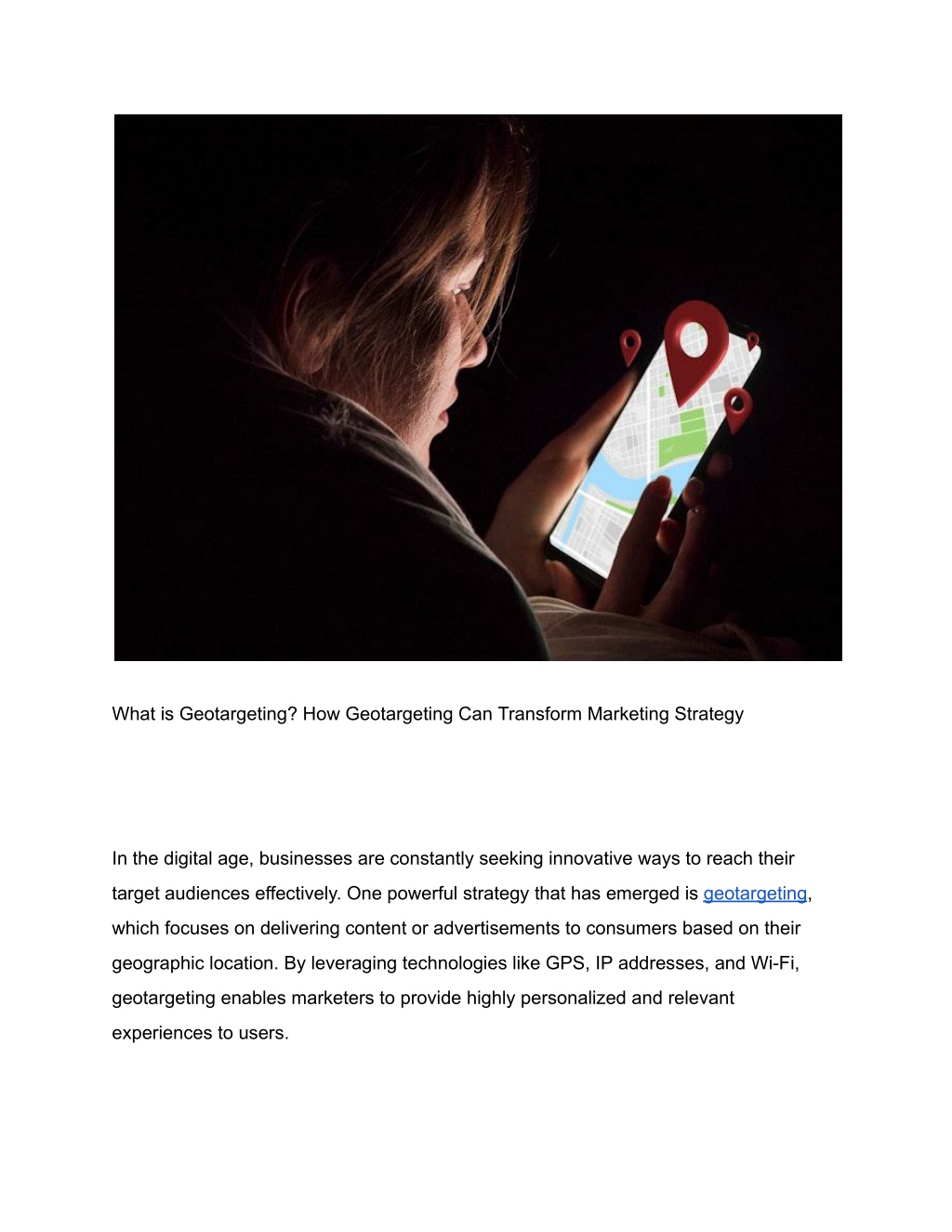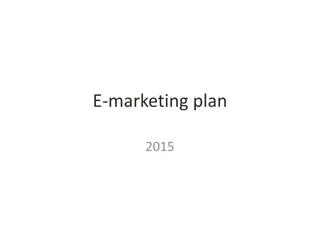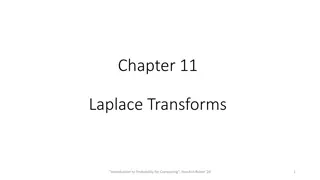
What is Geotargeting? How Geotargeting Can Transform Marketing Strategy
In the digital age, businesses are constantly seeking innovative ways to reach their target audiences effectively. One powerful strategy that has emerged is geotargeting, which focuses on delivering content or advertisements to consumers based on the
Download Presentation

Please find below an Image/Link to download the presentation.
The content on the website is provided AS IS for your information and personal use only. It may not be sold, licensed, or shared on other websites without obtaining consent from the author. Download presentation by click this link. If you encounter any issues during the download, it is possible that the publisher has removed the file from their server.
E N D
Presentation Transcript
What is Geotargeting? How Geotargeting Can Transform Marketing Strategy In the digital age, businesses are constantly seeking innovative ways to reach their target audiences effectively. One powerful strategy that has emerged is geotargeting, which focuses on delivering content or advertisements to consumers based on their geographic location. By leveraging technologies like GPS, IP addresses, and Wi-Fi, geotargeting enables marketers to provide highly personalized and relevant experiences to users.
What is Geotargeting? Geotargeting is a technique that involves delivering content to a user based on their physical location. This strategy utilizes various data sources, including GPS, IP addresses, Wi-Fi networks, and even Bluetooth signals, to pinpoint a user's location. The data is then used to tailor content, advertisements, and offers, ensuring they are relevant to the local context and audience. Benefits of Geotargeting Increased Relevance: Geotargeting ensures that marketing messages are highly relevant to the audience by considering their geographic and cultural context. This relevance often leads to higher engagement rates. Cost Efficiency: By focusing on specific locations, businesses can avoid wasting resources on irrelevant audiences. This targeted approach can reduce advertising costs and increase ROI. Improved Conversion Rates: Localized offers and promotions that resonate with a specific audience are more likely to convert, as they align with the users' immediate needs and preferences.
Enhanced Customer Experience: Personalized content based on location can significantly improve the user experience, making customers feel valued and understood. Competitive Advantage: Geotargeting allows businesses to outmaneuver competitors by offering more precise and appealing marketing campaigns. Implementing Geotargeting To effectively implement geotargeting, businesses should: Define Geographic Boundaries: Establish clear parameters, such as city, state, or zip code, to target the desired audience. Use Geotargeting Tools: Platforms like Google Ads and Facebook Ads offer built-in geotargeting functionalities. These tools can help in setting up and managing location-based campaigns. Create Localized Content: Develop content that speaks to the specific cultural and social norms of the target location. This includes using local language, slang, and addressing regional concerns.
Analyze Data: Regularly review performance metrics to understand the effectiveness of geotargeted campaigns and make necessary adjustments. Geotargeting vs. Traditional Marketing Unlike traditional marketing methods, which often cast a wide net, geotargeting allows for precise and efficient targeting. Traditional marketing methods, such as television ads and billboards, lack the ability to personalize messages for specific audiences. In contrast, geotargeting offers immediate feedback and analytics, enabling marketers to optimize their strategies in real-time. Future Trends in Geotargeting As technology advances, geotargeting is expected to become even more sophisticated. Emerging trends include the use of artificial intelligence for predictive targeting, the integration of augmented reality for immersive experiences, and the deployment of 5G technology for faster and more accurate data collection. In conclusion, geotargeting is a vital tool for businesses looking to enhance their marketing efforts. By delivering personalized and location-specific content, businesses can increase engagement, improve customer experience, and achieve better ROI. To dive deeper into the nuances of geotargeting, explore the detailed article on Work on Peak.
























